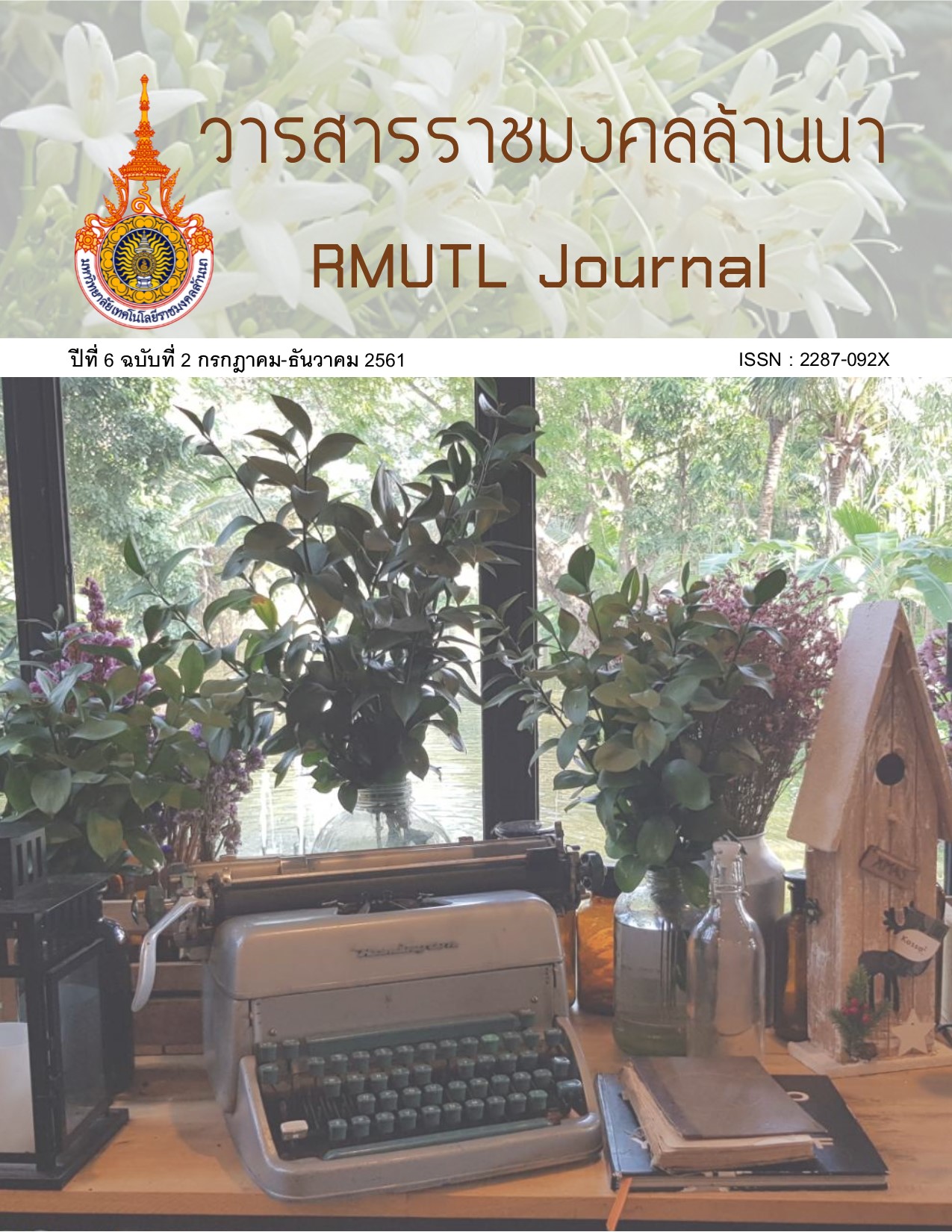Improving English for tourism and hospitality by teaching communication strategies to describe Thai culture-specific concepts
Main Article Content
Abstract
Describing Thai culture-specific concepts is a compulsory task in tourism and hospitality context. However, with no equivalent English words and terms, these concepts are difficult to describe, particularly to people from different cultural and language backgrounds. The objective of this research is to explain the value of teaching communication strategies to help Thai students solve their communication problems and enhance oral communication performances when describing Thai culture-specific concepts to Chinese students. The study was conducted with 10 Thai undergraduates who volunteered to be partners of Chinese students in an academic exchange program in Thailand. The data were collected in four phases: Phase 1 Pre-assessment, Phase 2 Direct teaching of communication strategy, Phase 3 Independent learning, and Phase 4 Post-assessment. In each phase, the participants were asked to complete the self-reflection questionnaires. The results showed that the participants’ scores for describing Thai culture-specific concepts in the post-assessment were higher than those in the pre-assessment, particularly in terms of fluency and vocabulary. Based on students’ self-reflection, they appeared to have more difficulties in describing abstract concepts than concreate concepts. They tended to use the taught communication strategies more frequently, particularly describing characteristics and properties. They also found these CSs useful and wanted to take risk using more CSs. The study suggests that the combination of direct teaching and independent learning enabled students to be more aware of the use of communication strategies and therefore improve their oral communication performances in describing Thai culture-specific concepts.
Article Details
บทความวิจัยนี้เป็นของลิขสิทธิ์
References
Chuanchaisit, S., & Prapphal, K. (2009). A study of English communication strategies of Thai university students. MANUSYA: Journal of Humanities, 17, 100-119.
Cohen, A. D., & Dörnyei, Z. (2002). Focus on the language learner: Motivation, styles, and strategies. In N. Schmitt (Ed.), An introduction to applied linguistics (pp. 170-190). New York: Oxford University Press.
Dörnyei, Z., & Scott, M. L. (1997). Communication strategies in a second language: Definitions and taxonomies. Language Learning, 47(1), 173-210.
Konchiab, S. (2015). Development of communication strategy instruction for a tourism education programme in Thailand. Unpublished Ph.D. thesis, Massey University, New Zealand.
Kongsom, T. (2010). The effects of teaching communication strategies to Thai learners of English. In G. Rata (Ed), Language education today: Between theory and practice (pp. 154-168). New Castle: Cambridge Scholar Publishing.
Kongsom, T. (2016). The impact of teaching communication strategies on English speaking of Engineering undergraduates. PASAA, 51, 39-70.
Lam, W. (2010). Implementing communication strategy instruction in the ESL oral classroom: What do low-proficiency learners tell us? TESL Canada Journal, 27(2), 11-30.
Leclerc, D., & Martin, J. N. (2004). Tour guide communication competence: French, German and American tourists' perceptions. International Journal of Intercultural Relations, 28(3-4), 181-200.
Littlemore, J. (2003). The communicative effectiveness of different types of communication strategy. System, 31(3), 331-347.
Magablih, K., Abulhaiha, L. A., & Saleh, M. A. (2010). Interpretation strategies used by Jordanian tourist guides to handle cultural specificity in tourism material. TEAM Journals of Hospitality and Tourism, 7(1), 1-12.
Maleki, A. (2007). Teachability of communication strategies: An Iranian experience. System, 35(4), 583-594.
Manchón, R. M. (2000). Fostering the autonomous use of communication strategies in the foreign language classroom. Links & Letters, 7, 13-27.
Nakatani, Y. (2010). Identifying strategies that facilitate EFL learners' oral communication: A classroom study using multiple data collection procedures. The Modern Language Journal, 94(1), 116-136
Wongsawang, P. (2001). Culture-specific notions in L2 communication strategies. Second Language Studies, 19(2), 111-135.

